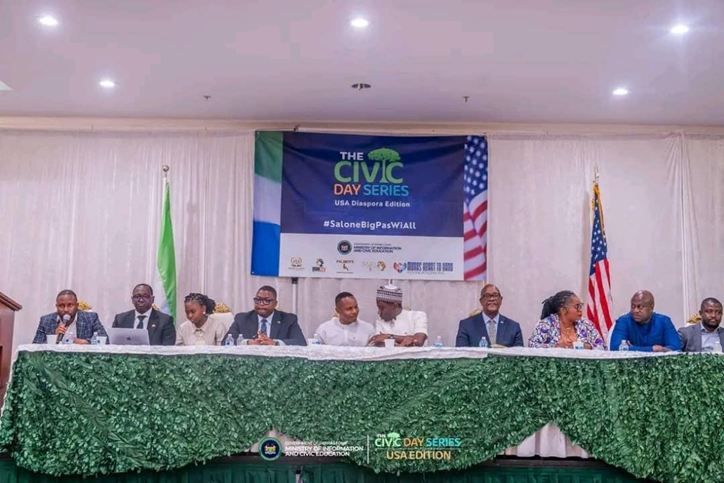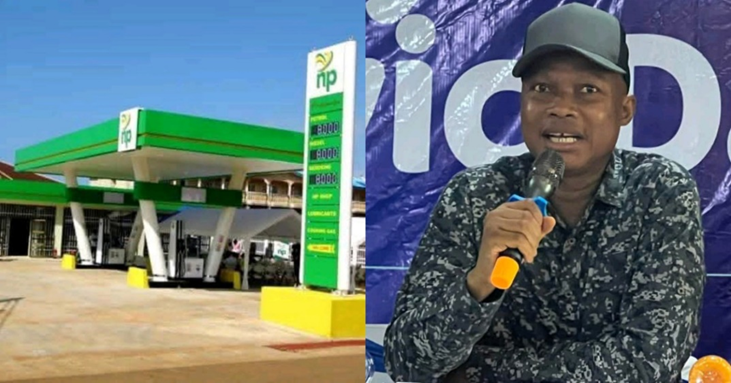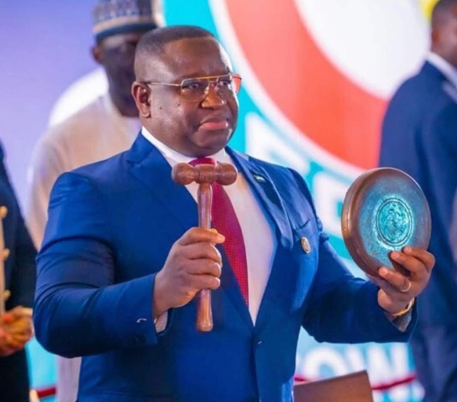By Mariama Bundu
The Sierra Leone government has unveiled two landmark water initiatives designed to revolutionize access to clean and safe drinking water across the country. The announcement came during the Civic Day Series USA Edition, organized by the Ministry of Information and Civic Education (MoICE), where the Deputy Minister of Water Resources and Sanitation, Engineer Amara Kallon, detailed plans for what he described as “transformational water infrastructure projects” that will redefine public health and community well-being.
Held in the United States, the Civic Day Series served as a dynamic platform for government officials and members of the Sierra Leonean diaspora to engage on key policy areas, particularly those impacting social welfare and sustainable development. The series, which continues to bridge the gap between the government and Sierra Leoneans abroad, reached a new level of impact with the revelation of these mega water projects—hailed by participants as one of the most significant commitments to improving national water systems in recent years.
In his keynote address, Engineer Amara Kallon outlined two major undertakings: the Freetown WASH and Aquatic Environment Revamping Project and the Sierra Leone Water Security and WASH Access Improvement Project. Both projects, he noted, are designed to strengthen the country’s water supply systems, enhance sanitation infrastructure, and improve water quality in urban and rural areas alike.
The Freetown WASH and Aquatic Environment Revamping Project, which is already 65% complete, is expected to directly benefit over one million residents of the capital city upon completion. This project aims to modernize water distribution channels, rehabilitate aging infrastructure, and protect Freetown’s aquatic environment from pollution caused by rapid urban growth.
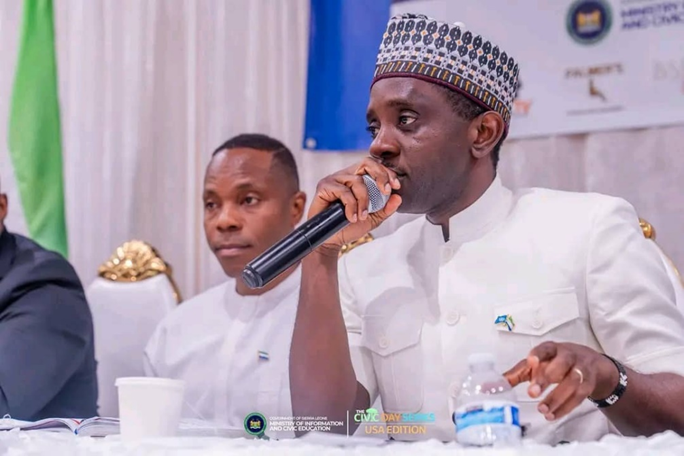
The second initiative, the Sierra Leone Water Security and WASH Access Improvement Project, represents a broader national effort supported by a $180 million World Bank grant. It will provide clean and safe water to an estimated five million people nationwide, with special attention to underserved districts where access to potable water remains limited.
Deputy Minister Kallon described these investments as a milestone in Sierra Leone’s development journey, emphasizing their alignment with President Julius Maada Bio’s agenda for human capital development, which prioritizes health, education, and improved living conditions.
“Access to clean water is not just a basic necessity—it is a fundamental driver of health, dignity, and economic growth,” Kallon stated. “These projects will ease the struggles of communities that have long depended on unsafe water sources and will enhance the overall well-being of our citizens.”
He further explained that the government’s water strategy focuses on sustainability and inclusivity, ensuring that rural communities—often left behind in development efforts—are integrated into national water delivery systems. In addition to improving water access, the projects will create local jobs, strengthen sanitation education, and promote environmental stewardship through modern waste management and water treatment initiatives.
The announcement drew widespread applause from attendees, particularly members of the Sierra Leonean diaspora who have long advocated for sustainable solutions to the country’s chronic water shortages. Many described the projects as “a turning point” for national development, noting that water scarcity has for decades affected public health, productivity, and gender equality, especially for women and girls who often bear the burden of fetching water for their families.
Representatives of the diaspora expressed optimism that the projects would not only improve daily life for citizens but also attract international confidence in Sierra Leone’s governance and infrastructure development. They also commended MoICE for using the Civic Day platform to foster transparency and dialogue between the government and Sierra Leoneans abroad.
The Civic Day Series, initiated by the Ministry of Information and Civic Education, continues to serve as a flagship government outreach program aimed at “bringing governance closer to the people.” Through town hall-style engagements, panel discussions, and direct citizen interaction, the series enables Sierra Leoneans in the diaspora to share perspectives, contribute ideas, and participate in shaping the country’s policy direction.
Speaking on behalf of MoICE, officials reaffirmed that the Civic Day Series will continue to highlight progress across sectors—including health, education, technology, and governance—while strengthening public trust through open dialogue.
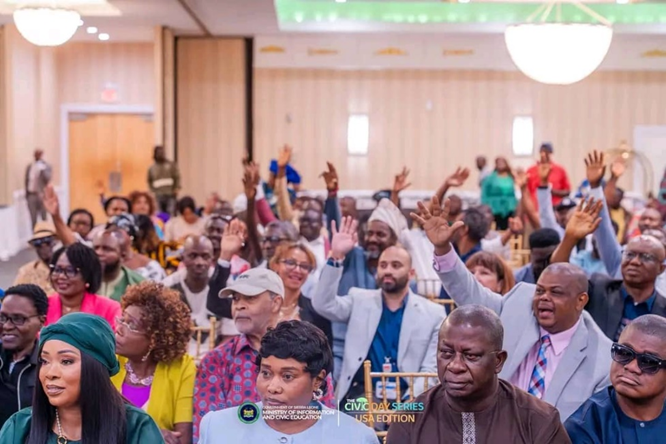
The water project announcement, they noted, exemplifies the government’s commitment to accountable leadership and inclusive development. It also reinforces the message that national progress is most effective when citizens, both at home and abroad, are informed and engaged.
Participants at the event lauded the government for prioritizing a sector that has a direct impact on the lives of ordinary people. They emphasized that sustained access to safe drinking water is essential to combating waterborne diseases, improving school attendance for children, and supporting economic productivity across communities.
The session concluded with renewed calls for collaboration between the government and development partners to ensure that the projects are completed on schedule and with maximum community participation.
For Sierra Leoneans in the diaspora, the announcement represented more than a policy statement—it was a symbol of hope and progress. As one attendee noted, “Clean water is life. These projects show that the government is investing in the health and dignity of its people.”
With the Civic Day Series USA Edition ending on such a promising note, the government’s focus on water access has set a new tone for development diplomacy—one that underscores that Sierra Leone’s growth story is being written not only at home but also through meaningful engagement with its global citizens.

